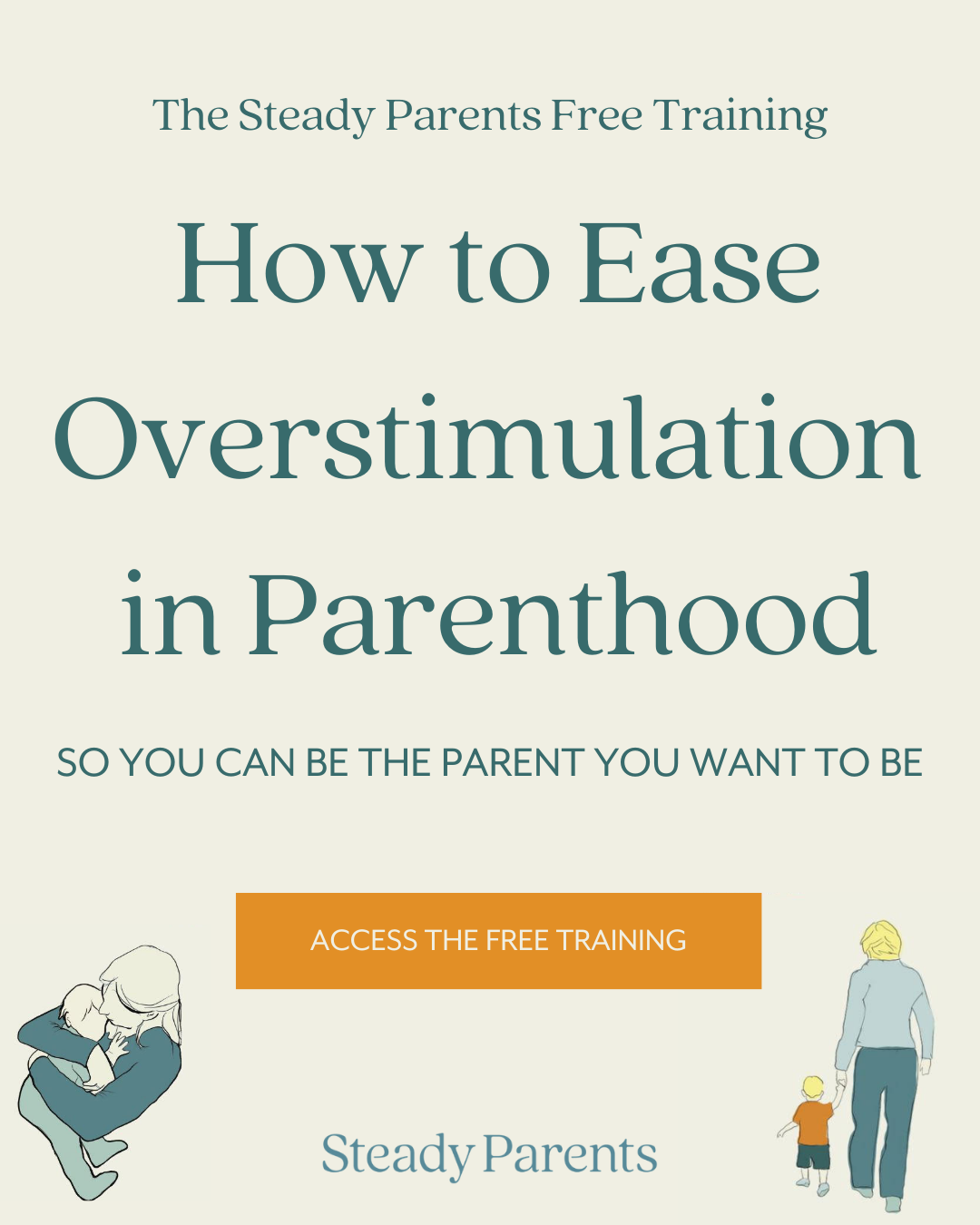How to Stay Calm When Your Child is Having a Meltdown
Hint: Sometimes, you actually can’t.
Hot take: The phrase “a dysregulated parent can’t regulate a child” is making parents dysregulated.
Yes, it’s true that our children depend on us for regulation.
Our ability to hold space for their big emotions, their distress, helps broaden their ability to hold space and tolerate their own big emotions and distress.
It is a powerful, life-changing experience for both people involved.
AND it is so much more complicated than that.
A dysregulated child can dysregulate a parent.
What is self-regulation?
To understand co-regulation we must first define self-regulation, as it relates to raising children. According to the USDHHS, self-regulation is “the act of managing thoughts and feelings to enable goal-directed actions.”
Self-regulation gives children the ability to cope during times of stress in work, school, play, and relationships.
Though the term self-regulation sounds like it is an innate quality all humans possess, it is actually developed by the relationships between children, their environment, and their caregivers.
A baby eventually learns how to soothe themself if they wake up in the middle of the night because when they were a newborn, they knew if they cried out for help because they were scared, hungry or wet, their mom or dad would come to their rescue.
The baby learns to self-regulate because of their past experience with co-regulating parents who attended to their needs in a predictable and supportive way.
What is co-regulation?
Co-regulation goes both ways. Co-regulation literally means using another’s nervous system state to shift our own state. It is a biological instinct to use cues from others to know that we are safe.
Our nervous system picks up on cues from other people in our world to know how it should be acting in that moment.
If we’re getting screamed at, hit, spit on, punched in the stomach, told that we aren’t loved or are the worst mom ever, how else is our nervous system supposed to react? We’re getting danger cue after danger cue. Of course our nervous system heats up.
When we think about co-regulation as a black and white “I need to be the regulated adult in this house and if I don’t it’s going to be an absolute sh*tshow and it’s all my fault” increases self-criticism, which puts us further down the dysregulation spiral.
It is quite literally our brain attacking ourselves, which continues to. It reduces our ability to see our needs in the moment and see the struggle we’re in.
Why does my child have a meltdown after school?
Do you have a child who seems moody, tired, or angry when they get home from school? Don’t worry- you’re not the only one.
This type of meltdown, also known as “emotional restraint collapse” happens when kids have had to restrain themselves all day at school.
Think about it. All day long, they are being told what to do, how to do it, and when they can do it. They are neglecting the needs of their nervous system to be on their best behavior.
They can’t speak without raising their hand first. They can’t play with the toys they want to play with. They can’t get a snack when they feel hungry.
All of these factors can lead to a very overstimulating day for our kiddos. And when they get home, they are physically and emotionally depleted.
They may push us away, say they want to be left alone, or even say mean things. This isn’t a personal attack on you.
Rather, it is our children crying out because their sensory needs aren’t being met and they feel a lack of control over their own mind and body.
So what can we do to help our children when they have a meltdown after-school (or anytime, really)?
We help them learn self-regulation through co-regulation. This can look like:
Let them decompress. Offering them a snack and quiet-time after school helps their nervous system calm down from the overstimulation they experienced all day long.
Bond with them before they head to school. This can include spending 10 minutes reading, singing their favorite song, or playing on the floor with them before you head out.
Offer something tangible they can take with them to school. A photo or note in their lunchbox, their favorite stuffed animal, or even a fidget-spinner can all help them feel connected to you even in your absence and bring them a sense of comfort.
““It makes sense that I feel like this.””
What is self-compassion and how does it relate to co-regulation?
At the end of a long day of helping manage our own needs and the needs of our kids, it’s common to feel spent and dysregulated.
However, just because it’s physiologically normal to get dysregulated doesn’t mean it feels good or is effective. This is where self-compassion comes in. And self-compassion is necessary for self-regulation.
This might look like:
“It makes sense that I yelled. I was tired, hungry, overstimulated, my kid was hitting me, they looked distressed, and they were crying. All of these deplete my ability to regulate myself. Moving forward I can lean against a wall, chew some dried mango, or give myself a hand massage.”
Even before you get to the yelling or threatening or bribing or pleading, turn inward. “It makes sense that I feel like this.”
Acknowledging the struggle helps regulate you so you don’t continue to tip into fight or flight mode.
Release yourself from guilt. Aside from “perfect parenting” not being attainable, it shouldn’t even be a goal of ours. Our goal should be to be attuned enough with ourselves and our children that we can broaden our tolerance for distress and sustain safety, connection, and predictability in our relationships.
Getting dysregulated means we have the opportunity to model coming out of dysregulation with multiple strategies and adaptations (and the life-changing moment of vulnerability with an apology and repair). Experiencing dysregulation shows our children that the full range of the human experience is safe, relationships can be flexible, and no one state is permanent.
For more on my story with how I got started with this work, be sure to check out my about page.
If you find yourself dysregulated frequently and struggle to understand it, come out of it, or apologize & explain it to your children later, Sensing Your Needs in Parenthood takes a deep dive into this. It’s a comprehensive six-week program (with bite-sized weeks!) to guide your understanding of your own sensory overload and dysregulation, and better yet, tackle it all with confidence and compassion.
PIN THIS FOR LATER:









